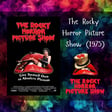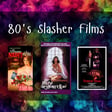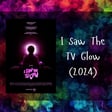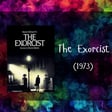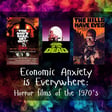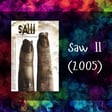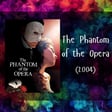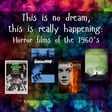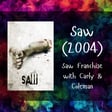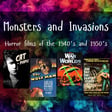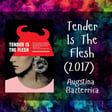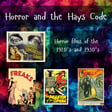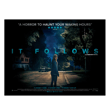Become a Creator today!Start creating today - Share your story with the world!
Start for free
00:00:00
00:00:01

In Defense of Horror
Fans around the world understand all that horror has to offer us, but non-horror fans continue to misunderstand it. In this episode, We will talk about what makes horror so special and what draws the horror community in. You'll get to hear a breakdown of some common criticisms of the genre, as well as some counterarguments about why horror might be more valuable than people give it credit for. Enjoy this short primer episode that gives you an idea of the perspective you can hope to see more of in future episodes.
Transcript
Introduction to 'What Haunts You' and Today's Topic
00:00:24
Speaker
Welcome to What Haunts You, a podcast about the stories that haunt our dreams. I'm your host, Carly. Today, we're going to be talking about the public understanding, or perhaps the public misunderstanding, of the horror genre.
00:00:42
Speaker
If you want to keep up with the podcast and stay up to date on when new episodes are released, hit the notification bell on Spotify or follow us on Instagram at whathauntsyoupod.
Misunderstanding of Horror in Awards and Society
00:00:54
Speaker
Last year, The Substance made waves as Demi Moore received several award nominations for her role as Elizabeth Sparkle, the starlet that was aging out of her position in Hollywood.
00:01:08
Speaker
Despite The Substance being not just any horror movie, but a pretty disgusting body horror movie, and I mean that as a compliment, Demi Moore even won much-deserved Golden Globe for Best Actress in a Musical or Comedy.
00:01:26
Speaker
Award shows, similarly to many film critics, seem to have absolutely no idea how to approach horror movies or what to make of them.
00:01:38
Speaker
They don't even know where to start. The categorization alone of putting a movie like The Substance in comedy or musical makes this abundantly clear.
Recognition and Impact of Strong Horror Content
00:01:50
Speaker
Horror movies are kind of over there, kept in a corner almost with the hopes that they will go unnoticed, stuffed into a box so far into the back of the closet that hopefully people will forget it's there at all.
00:02:07
Speaker
It's rare that horror movies receive the recognition they deserve for the stories they are able to tell and the themes they are able to discuss. But once in a while, a horror movie comes out that is so strong that it breaks through that barrier.
00:02:25
Speaker
When this happens, the movies make headlines, the cast and crew win some awards, and for a little while, people remember that horror is actually good.
00:02:38
Speaker
The substances discussion of beauty standards and aging under the patriarchy got people's attention at a time where plastic surgery and ozempic are a lot of people's secret ingredients.
00:02:52
Speaker
It was a phenomenal movie, but on top of that, it was also a case of the right movie in the right place at the right time. The content was important and relevant, and it was delivered so effectively.
00:03:08
Speaker
It came out at a time where it would be somehow even more relevant than probably it was when the script must have first been written. Because of all of this, it broke through the walls that are put around the horror genre.
00:03:22
Speaker
It left the corner, was taken out of the box in the back of the closet, and for a moment, put horror movies back in the spotlight of the general public.
Why Do People Enjoy Horror?
00:03:33
Speaker
Whenever this happens, it raises the same discussion.
00:03:37
Speaker
Why is there such a lack of respect for what the horror genre has to offer? If you ask a room full of horror fans what they like about horror, you'll get a variety of answers.
00:03:52
Speaker
You'll probably hear a lot of people reflect on their favorite subgenre and why they like that one in particular. Some people will want to talk about scores and soundtracks and the way sound adds to the tension of a movie.
00:04:08
Speaker
Some people will want to talk about cinematography and how framing can not only help with good scares, but set the tone for a really great movie. Some people will say more simply that they're just mostly in it for the fun of the scares.
00:04:24
Speaker
Some people will tell you that they have spent life feeling like an outcast or a misfit, and that horror allows space for that experience, creating a community for outcasts to not feel so alone.
00:04:38
Speaker
But in addition to these reasons, and many more, There is one wonderful thing about horror that's widely agreed upon, even by people who might seriously disagree about what the best subgenre is or what the best era of horror movies was.
00:04:56
Speaker
Horror fans like having a safe and controlled arena to play with fear and anxiety. A way to experience these difficult emotions without much personal risk of harm or putting themselves in serious danger.
00:05:13
Speaker
a kind of catharsis and, more importantly, a time where we don't have to pretend to not be afraid, but rather an opportunity to embrace our fear as an emotion that's fundamental to our humanity.
Horror's Reflection of Societal Issues and Misogyny
00:05:29
Speaker
We all feel fear and anxiety all the time. We feel this fear oftentimes relating to things that are far out of our control. We fear the things that we don't want to go through again.
00:05:43
Speaker
We fear the things we don't ever want to go through. We fear the things that the news tells us we are supposed to fear. We fear real problems like school shootings and the effects of a global pandemic.
00:05:58
Speaker
We feel fear about things that don't wrap up in 90 minutes, or in the case of a lot of newer movies, two hours. But for better or worse, a movie will always end.
00:06:12
Speaker
For most of us, the fears of our real lives go on and on. I have always been hyper-aware that we live in a scary world. As a young kid, I'd lay in my bed at night wondering, what would I do if?
00:06:29
Speaker
I'd play out violent and terrifying scenarios in my mind and how I might navigate and just maybe survive them. And as an anxious adult, the world doesn't really feel any less scary.
00:06:44
Speaker
I'm less scared of a stranger breaking into my house than I used to be, of some man in a ski mask driving a white van, killing my parents and stealing me away in the night in a kind of stranger danger nightmare.
00:06:59
Speaker
And I'm more scared of the things I've since learned are the real horrors of the world, like bigotry and hatred and the serious violence that that can lead to.
00:07:12
Speaker
I'm scared of the real harm that real people do to each other every day, and the darkness that everyday people can ultimately be capable of. What I'm really getting at here is that real life is incredibly scary.
00:07:28
Speaker
it is maybe even too scary to look at sometimes without the exaggeration and abstraction that horror can provide. The presence of the devil in Rosemary's Baby, even though it's not confirmed until that fateful final and admittedly cheesy scene, opens us up to the idea that Guy Woodhouse, a mostly normal but self-centered husband,
00:07:55
Speaker
is in fact an asshole to his wife in a way that might not otherwise have been so welcome if he was manipulating his pregnant, vulnerable, and isolated wife in a normal, mundane, and non-supernatural way.
00:08:12
Speaker
We can't ignore the impact of her lack of autonomy when the devil is in the picture the same way we could have if it was just a normal lack of autonomy that was typical and expected for women of the time.
00:08:28
Speaker
And that's a movie that is highly sympathetic to its main character, Rosemary, the woman at the center of everything. It wants us to feel her fear, her stress, and her concern for her own life and the life of her unborn child.
00:08:46
Speaker
Her internal world is the only one that matters in the entire story. Despite this being far from unusual for the horror genre, one common complaint about horror made by people who don't quite understand it is that it's misogynistic.
00:09:03
Speaker
Some people even go so far as to say that horror inherently hates women and is disproportionately misogynistic. But I would argue that any misogyny in horror is a product of the misogyny in the rest of the world.
00:09:18
Speaker
What I mean to say is, horror movies are misogynistic because the movie industry is misogynistic. And the movie industry is misogynistic because the society we live in is misogynistic.
00:09:33
Speaker
Horror is actually uniquely interested in the female experience. Horror is actually uniquely interested in the female experience, sporting far more female protagonists than probably any genre other than romantic comedies, and to such an extent that it's even become a central horror trope, the final girl.
00:09:58
Speaker
The main horror archetype is female. the one who usually survives, the one who is creatively dealing with whatever danger is being faced by everyone, and the one who's usually braver than any of the men in the picture.
00:10:16
Speaker
There's a speech Reese Witherspoon gave about movies that I love, and in it she criticized the way so many movies present us with female characters asking men, what are we going to do? so During times of stress or when they're facing a problem, and somehow expect us to take that as believable behavior for women.
00:10:39
Speaker
But in horror, we see women being decisive. We see women solving problems and taking action. That isn't always done perfectly, but the mistakes aren't tied to something about the nature of horror, but to the nature of unchecked patriarchy.
00:10:58
Speaker
I would challenge anyone who finds horror to be particularly misogynistic to more genuinely consider the central role that women play in most horror films, often more central than in more acclaimed and recognized genres.
The Influence of Real-Life Violence on Horror
00:11:14
Speaker
It would be easy enough to point at horror and claim that it is corrupting society, or more specifically, corrupting the youth, Young people have always made up a significant portion of the audience for horror movies, raising criticism from concerned parents and community leaders wondering just what the hell their kids are watching.
00:11:37
Speaker
From the Hays Code to the Satanic Panic, there have always been concerns about what is being put on screen and how it might sway the audience, either in their beliefs or in their behavior.
00:11:51
Speaker
When it comes to horror, the graphic content is a pretty common source of criticism and complaint. Some of this is about the frequent use of nudity in horror, but even more of it is about the violence shown on screen.
00:12:07
Speaker
But the fake violence we see on screen is not able to be understood without the context of the real violence we are exposed to today and the violence that people were being exposed to at the time that different movies were created.
00:12:23
Speaker
The Vietnam War was the first highly televised war in history, where people were being exposed to a level of violence and atrocity that they probably couldn't have imagined previously.
00:12:36
Speaker
Rather than seeing the aftermath of a war the way people did with World War two people were witnessing the violence as it unfolded, watching helplessly from the other side of the world, while they're likely losing loved ones, friends, family members, partners.
00:12:55
Speaker
whether that was losing them literally to the loss of life or losing them to the psychological damage so many returned home with, with no resources to address it properly or give them any help.
00:13:09
Speaker
It is not a coincidence that the violence in movies also became more extreme around this time. As the violence people witnessed became more and more extreme, the fears that people had grew bigger and bigger.
00:13:26
Speaker
Americans were being inundated with violent imagery, a reminder of the horrors that human beings are capable of. Since horror is an opportunity to vent that fear, it makes a lot of sense that all of this violence was channeled into the horror movies of the time,
00:13:47
Speaker
reaching a new level of violence in movies like Night of the Living Dead, and why Toby Hooper even claimed that the Texas Chainsaw Massacre was a direct response to the televised footage of the Vietnam War.
00:14:03
Speaker
This is also when we get key figures in the genre, like Tom Savini, who witnessed the violence firsthand as a combat photographer and then became the master of practical special effects, focused on trying to make the bodies we see damaged in horror movies mirror the bodies that he saw damaged in combat.
00:14:28
Speaker
I can only imagine that this was his way of processing what he saw, the violence he bore witness to in a way that was entirely under his own control.
00:14:40
Speaker
He not only created the kind of bloody practical effects that were so prominently featured in horror of the late 70s and into the 80s, but he created a special effects school, leaving a legacy of special effects based on his real experiences that last into the movies being made today.
00:15:02
Speaker
Clearly, we are only able to have the level of violent realism that some horror movies feature because of the real-life horrors that people were exposed to.
00:15:15
Speaker
the Vietnam War wasn't the only instance of publicized military violence being associated with an increase in the level of violence in horror movies. In 2004,
00:15:27
Speaker
the same year that evidence of torture committed by American soldiers at Abu Ghraib was aired on CBS, James Wan gifted all of us with the first movie of the Saw franchise, which became increasingly torturous, violent, and gruesome as the franchise went on to spawn a new subgenre called torture porn, which is perhaps the most controversial and the most disparaged subgenre that there is.
00:15:57
Speaker
The intensity of these movies understandably pushed a lot of people even further away from the genre, although personally, i have to admit I'm a fan of a lot of them.
00:16:10
Speaker
This massive increase in gore and violence on screen led to even more stigma against the genre that persists to this day.
Stigma and Underappreciation of Horror
00:16:20
Speaker
Society continues to make it clear that horror, despite its more recent successes, is not exactly an accepted or an acceptable genre.
00:16:31
Speaker
Broader audiences have always had ways of doing mental gymnastics to avoid having to say that they like horror movies, or even a horror movie.
00:16:43
Speaker
Horror is so maligned that people even go so far as to recategorize the movies that they think are of a high enough quality to be worth something.
00:16:55
Speaker
People talk about Silence of the Lambs being a brilliant film, but are often insistent that it is a psychological thriller, not a horror movie, despite it being about a serial killer peeling the skin off of women.
00:17:12
Speaker
I could go on all day about thinking that thriller is just a sub-genre of horror, but maybe that's a conversation for another time. And as misguided of representation as it was, and as rightfully criticized as it is, it elicits empathy toward the character of serial killer Buffalo Bill, who was violently desperate after being denied gender-affirming care.
00:17:38
Speaker
I'm not here to defend the use of this character, but in the way that horror consistently empathizes with the outsider, we are provided with a truly tragic backstory to the monster of this film.
00:17:53
Speaker
a similar example occurs in a famous movie from the 70s where a killer, obscured by his surroundings and in all the hubbub of the time of year, targets the young people in town.
00:18:07
Speaker
He picks them off one by one, while authorities remain in denial that there is a true threat until the danger becomes so evident that it's time for someone to take action.
00:18:20
Speaker
Does this plot sound familiar? Because that killer isn't Michael Myers, although it certainly could be. That killer's name is Bruce, and he's the shark from the quote-unquote action-adventure movie, Jaws.
00:18:36
Speaker
Jaws delivers that exact kind of formulaic slasher story that so many horror fans love without people even noticing.
00:18:47
Speaker
And as Carol k Clover says in her book, Men, Women, and Chainsaws, Gender in the Modern Horror Film, a particular example may have original features, but its quality as a horror film lies in the way it delivers the cliché.
00:19:05
Speaker
The same plotline that is often seen as repetitive, silly, or unimpressive in a traditional slasher movie is embraced when it's delivered in a unique enough way, especially when it's in a way that could be mentally separated from those other horror movies.
00:19:25
Speaker
Today, this kind of snobbishness towards horror is ever present in the larger pop culture.
Transformation Through Elevated Horror
00:19:32
Speaker
More recently, this has been showing up in conversations around what people are now calling elevated horror.
00:19:40
Speaker
This term is used in conversation often around newer directors like Jordan Peele and Ari Aster, who are making emotionally charged movies with heavy social commentary on things like race wealth, family, and relationships.
00:19:59
Speaker
And I gotta say, i do love these movies. They are emotionally poignant, deeply personal, and unflinching in the way they address themes that society often wants to turn away from.
00:20:11
Speaker
We are currently living in a horror renaissance. It's an exciting time to be a horror fan. And a lot of the key movies thought of as elevated horror were coming out as this was first picking up speed.
00:20:26
Speaker
But these movies have always existed. the movies that were more about the relationships than about the abject horror. Movies like The Shining and Rosemary's Baby explore the family dynamics of their characters to a greater extent than they contain traditional horror elements, and they're very effective for doing so.
00:20:48
Speaker
Similarly, Alien is ultimately about capitalism preying on the working class, and that movie is scary as hell, and that's still what it's about.
00:20:59
Speaker
Over the years, difficult topics like mental health, abuse, addiction, sexuality, oppression, and more have been moved out of the realm of subtext and into the actual content of horror movies, and at the same time have also seen an increase in overall visibility outside of the genre.
00:21:24
Speaker
This creates the opportunity for increasingly effective exchanges between horror writers and directors and their audiences. Increased discussion and awareness of these issues not only provides horror creators with a new and improved vocabulary for addressing them, but also means that the general audience has that new and improved vocabulary too.
00:21:49
Speaker
Because of this, some of the older movies that are similarly elevated, and I hope you can hear the scare quotes around that, can feel outdated or like they're missing the mark if you aren't taking them within the context in which they were created.
00:22:04
Speaker
But just because something was working with the language and understanding of its time doesn't mean that it was a more shallow exploration of a difficult topic.
00:22:15
Speaker
It just means we've outgrown the message. And outgrowing the message doesn't mean we can't appreciate it. Outside of these quote-unquote elevated horror movies, people are also reluctant to see or even accept the presence of any value in horror movies.
00:22:36
Speaker
Director Eli Roth, who isn't among my favorites but did host a wonderful Shudder series called History of Horror, talks about the idea of getting blood in your eyes when you watch a horror movie.
00:22:49
Speaker
If you get too scared, too disturbed, too grossed out, the real story and any message it contains can get totally lost on you.
00:23:01
Speaker
Once a movie crosses some line, and this line is in a different place for everyone, it becomes harder to see what a movie is doing or think about why it's doing it.
00:23:12
Speaker
This doesn't reflect badly on the people who don't see past the scares, but it doesn't reflect accurately on the movies either. Sometimes the real story is better revealed on a second watch when expectations are set and you're more prepared for the scares.
00:23:30
Speaker
I certainly don't fault people for not liking movies that are not their thing, but I do fault people for their insistence that certain movies are worthless just because they aren't seeing the value themselves.
00:23:44
Speaker
And as seen with the idea of elevated horror, when a horror movie comes along that they do see the value of, they chalk it up to being an exception.
00:23:55
Speaker
I'll always remember when my dad first started watching The Walking Dead and was trying to convince me to watch it too. I've since watched a lot of it, and it is good, but this was in the early days of me really getting into horror.
00:24:10
Speaker
And he was telling me about it, and he said, it's really interesting. I don't like it because it's zombies. I like it because it presents a lot of ethical questions to think about, and it really makes my brain start going.
00:24:25
Speaker
And although I didn't know it at the time, that's a big part of what horror media is all about. And that's why it deserves its flowers.
Listener Engagement and Next Episode Teaser
00:24:37
Speaker
If you want to tell me about your thoughts on why horror gets such a bad name and the weird reputation that it has, follow me on Instagram at whathauntsupod.
00:24:48
Speaker
I'd love to hear your thoughts.
00:25:10
Speaker
Thank you for listening to the first solo episode of What Haunts You, a podcast about the stories that haunt our dreams. Don't forget to check out the podcast on Instagram at whathauntsyoupod to keep an eye out for upcoming episodes.
00:25:24
Speaker
Our next guest episode comes out in just a few weeks, where my friend Kelly and I will be discussing the silent film The Phantom Carriage.
